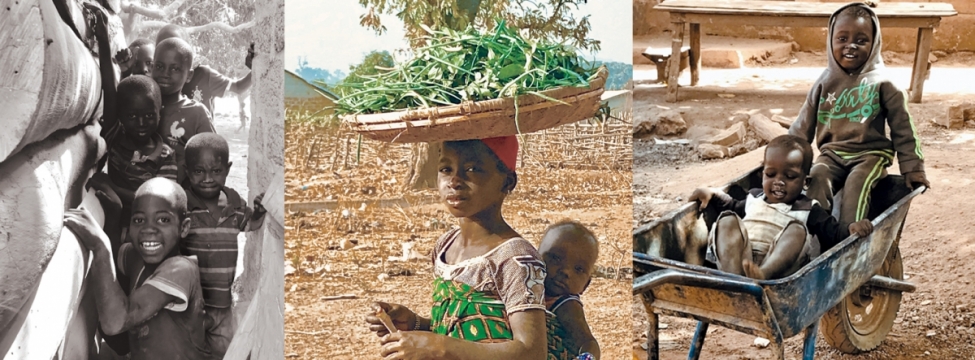To serve you better, our new website displays information specific to your location.
Please visit the site and bookmark it for future use.
You are here
SRK Kazakhstan ›Development of a national resettlement framework for the Guinean government
|
Download A4 | Letter |
SRK News | Issue 59:
Environmental & Social Services
Jessica Edwards, Senior Social Consultant and Public Participation Practitioner
The rapid expansion of various industries, in particular mining, in the West African country of Guinea has led to an increase in resettlement projects. However, without suitable legislation and a clearly defined, and enforced framework, resettlement happens in an ad hoc fashion, often with unsustainable outcomes for the affected people.
Following external scrutiny and criticism from Human Rights Watch, the Government of Guinea initiated a process to develop a national resettlement framework. Given its importance, funding and technical support were provided by the Deutsche Gesellschaft für Internationale Zusammenarbeit. SRK’s recognised expertise in the resettlement field and our recent experience in West Africa lead to our appointment to develop the framework.
The primary purpose of the framework is to define a common approach to managing involuntary displacement. The framework provides a practical guide to resettlement planning and systematically leads the user through a series of twelve steps in the resettlement process. It also identifies areas that can add value to resettlement such as adopting a development approach, building lasting partnerships, learning and sharing. The framework is designed to apply to both public and private projects, across all economic sectors. The process will culminate in a government decree, making the framework legally binding and enforceable.
At the project’s onset, SRK’s team undertook a comprehensive stakeholder engagement programme. This approach ensured a multi-sectoral buy-in and support from stakeholders ranging from national government to private companies, multilateral lender groups, community based organisations and directly affected communities. Intensive engagement took place with stakeholders in the capital city, Conakry, and regional locales where industrial and mining activities are concentrated.
This project shows how resettlement is increasingly on the radar of national governments, civil society organisations and funding institutions. Developing a multi-sectoral framework is a ground breaking achievement for Guinea, and can help regulate future resettlement, guiding it towards a more sustainable developmental outcome.
Jessica Edwards: jedwards@srk.co.za


